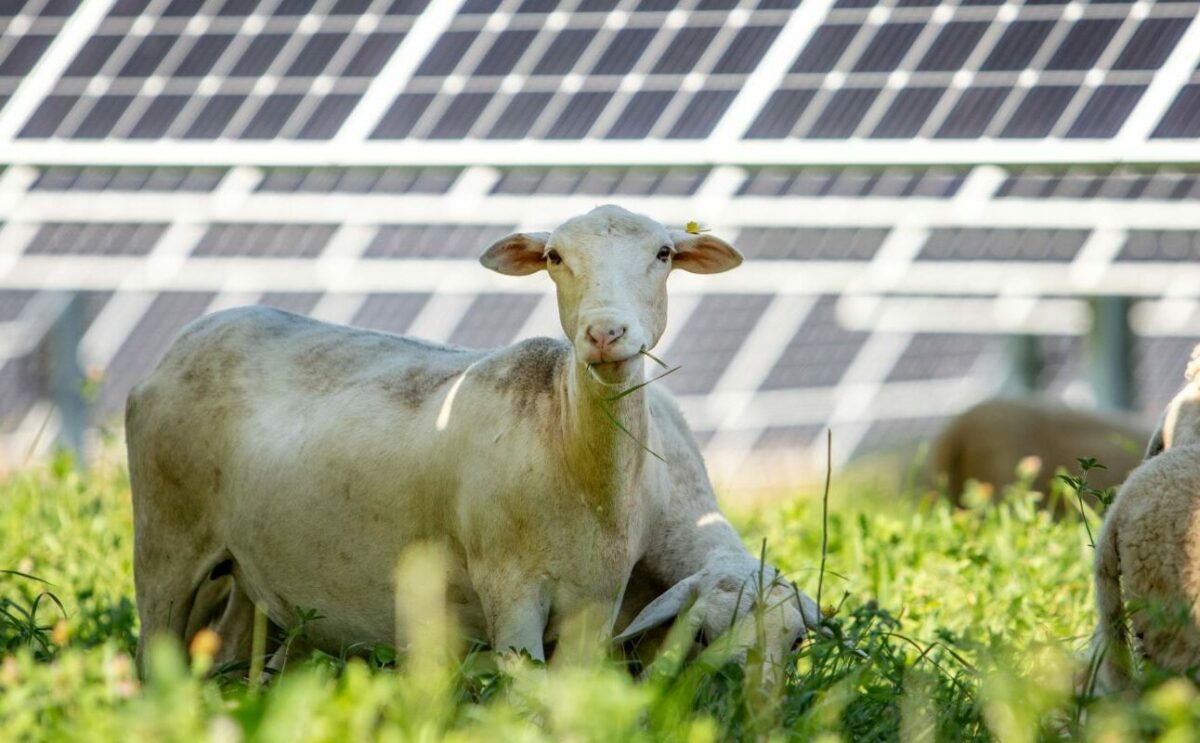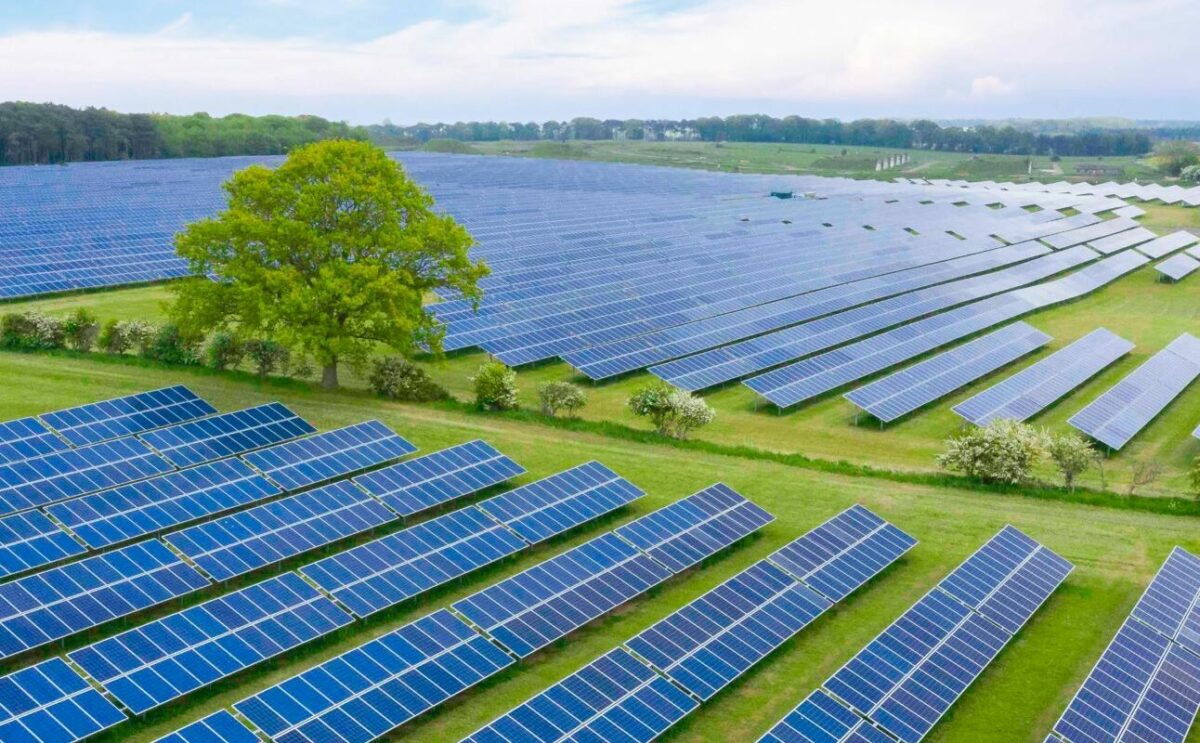World Economic Forum brief: Clean energy as a catalyst for a nature-positive energy transition
Environmental benefit is a key driver in the work to create responsible solar power. As our crucial solar and renewable energy infrastructure is built, there is an increasing focus on how biodiversity loss can be both prevented and even reversed at all stages of a project lifecycle. How can utility-scale renewable energy projects leave ecosystems in better shape than they found them
Clean energy: Delivering a positive impact on nature, and benefitting from it
We are proud to have contributed to the World Economic Forum (The Forum) briefing document: Clean energy as a catalyst for a nature-positive energy transition.
The World Economic Forum, through its initiatives in the Center for Energy and Material, is mobilising collaborative actions to deliver a rapid and responsible energy transition, while the Center for Nature and Climate has been focusing on ensuring that this transition will contribute to the protection, restoration and regeneration of natural ecosystems.
In 2023, the Clean Power, Grids and Electrification programme, supported by the Ocean Action Agenda, convened experts and leaders from more than 60 organisations representing business, NGOs, philanthropy, and academia to collectively identify approaches and best practices for a rapid and responsible energy transition.
Key highlights
Six ways to enable a nature-positive energy transition
The Forum’s brief identifies six key drivers to clean energy expansion with “a net positive impact on biodiversity”:
1. Government action and policy
“Policy mandates and regulatory requirements remain among the strongest drivers for nature-positive action…Policy reforms can also help guide business decisions. For example, England’s new Biodiversity Net Gain mandate, enforced since 2024, establishes a regulatory requirement for all new developments to achieve a minimum 10% biodiversity net gain.”
2. Measurement frameworks
“A common language and site-specific measurement system for the clean power industry…would help businesses benchmark progress, support an objective definition and assessment of non-price criteria in renewable energy tenders as well as requirements in the permitting process, inform investments and improve reporting.”
3. Visionary leadership setting and delivering ambitious goals
“Although 80% of CEOs feel that they have a strong understanding of their business impact on biodiversity, only 35% are initiating nature protection and/or restoration…In addition to company-level targets, a sectoral approach can help address the impacts and dependencies that different parts of the economy have on nature and biodiversity.”
4. Partnerships for collective action
“Addressing the nexus of energy, climate and biodiversity is new territory for many leaders. Cross-functional collaborations and partnerships to test and scale-up efforts, learn from experience and develop best practices are critical to accelerate the development of new solutions, approaches, and tools.”
5. Innovative financing
“Innovative financing is key in implementing and scaling up nature conservation and restoration initiatives within clean energy deployment…Solutions include Debt-for-Nature swaps, Biodiversity Credits and Certificates, Green Bonds, Payments for Ecosystem Services (PES) as well as other incentives, such as tax incentives, subsidies, or market-based mechanisms to encourage biodiversity conservation and restoration.”
6. Data, technology and innovation
“Data is critical to understand the local environment, monitor the projects’ local and global impact and to make informed decisions.” Examples include:
- HUB Ocean
- Integrated Biodiversity Assessment Tool (IBAT)
- Species Threat Abatement and Restoration (STAR) Metric
- Avian Sensitivity Tool for Energy Planning (AVISTEP)
- AI technology that records the 3D flight behaviour of seabirds
Delivering ambitious goals
As world leaders drive to deliver global climate targets through a buildout of clean energy infrastructure, with an “estimated investment of $4.5 trillion, by 2030”, The Forum and its collaborators are working to ensure that we do so in an equitable and just way. This is encapsulated through a nature-positive and people-positive approach.
The people-positive approach, focusing on community engagement, goes hand-in-hand with the nature-positive focus of delivering biodiversity net positive impacts.
At COP28, a new C-Suite guide for community engagement was released by The Forum.
“This report outlines the core principles of establishing and nurturing partnerships with local communities, while also providing insights into how we can build trust and transparency through our community engagement practices. This requires an evolution of our business processes and operations, placing emphasis on community engagement and integration of local partnerships throughout the project lifecycle.” – Kareen Boutonnat, CEO of EMEA and APAC, Lightsource bp
Leading by example
We believe that renewable energy companies can and should be a catalyst for both people-positive and nature-positive approaches as we seek to achieve global climate targets with sustainable energy.
Lightsource bp’s Penny Laurenson, Global Head of Sustainability & Director of Environmental Affairs, EMEA/APAC, along with other team members, is actively collaborating with WEF in both tracks, helping develop global nature-positive standards and community outreach guides.
We understand the need to walk the talk and have set the ambition for our solar farms to achieve a biodiversity net gain within five years of operation, wherever possible. Learn more about our commitment to environmental stewardship.
Community engagement
As we develop projects around the world, we understand the crucial role that local communities play in the energy transition.
Lightsource bp is committed to fostering open engagement across our renewable energy projects to maximise opportunities for positive impacts. We partner with local communities as we seek to understand their needs, invest in the local area, and educate and empower the next generation. We continue to embed the importance of community engagement in our business processes and in the mindset of our team members.
Find out more about our commitment to social responsibility.
A win-win for energy, climate, people and nature
As The Forum brief highlights, the answer to making long-term positive impacts on ecosystems, increasing biodiversity and protecting natural habitats is about embedding responsible approaches throughout the lifecycle of clean energy projects.
By focusing on the key six enablers above and with collaboration of business, government, civil groups and beyond, a secure, sustainable and nature-positive energy transition is possible.
Too often there is a sentiment that growth and expansion is a zero-sum game. What The Forum and its partners are embarking on, with the people-positive and nature-positive approach to achieving the clean energy transition, is a win-win solution.
Through our work with solar power projects, we are proud to actively participate in these global initiatives, while at the same time looking inward and leading by example.
Learn more about our commitment to environmental stewardship and social responsibility.
Latest news
01 Sep, 2025
Beyond renewable energy: Lightsource bp’s commitment to biodiversity and farming
The renewable energy sector, particularly solar energy, is playing a critical role in addressing biodiversity loss and improving ecosystems.
30 Jun, 2025
SolarPower Europe launches Global Market Outlook for Solar Power 2025-2029
Read our summary of SolarPower Europe’s Global Market Outlook for Solar Power 2025-2029.
29 May, 2025
Lightsource bp publishes 2024 Sustainability Report
Lightsource bp, a global trusted partner in delivering onshore renewable energy solutions, is pleased to publish its 2024 Sustainability Report.




